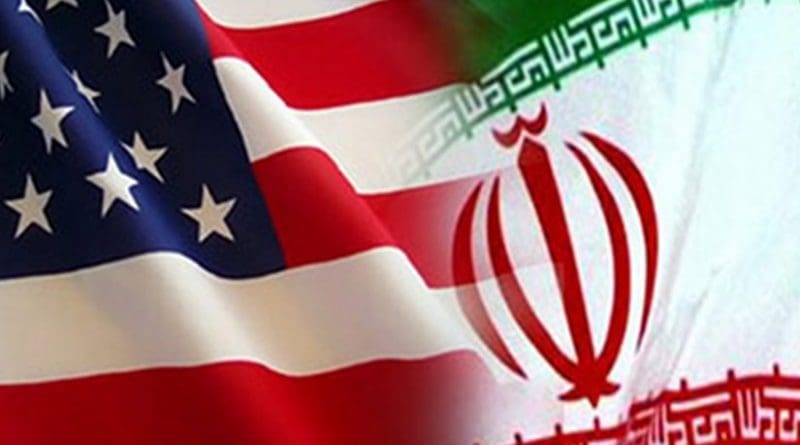Travel By Iranians To US Under Visa Waiver Program – OpEd
By Iran Review
By Hossein Bozorgmanesh*
Following the recent terrorist attack by an American couple, who are said to be affiliated with Daesh terror outfit, on a welfare center in the city of San Bernardino in the US state of California, which left 14 people dead and 22 others injured, the US Congress decided to pass a new law to fight terrorism. According to the new law, citizens of 38 countries, who previously did not have to apply for a visa to travel to the United States, will now have to do so if they have traveled to countries like Iraq, Iran, and Sudan during the past five years. In addition, nationals of these countries with dual citizenship will need to apply for a visa before traveling to the United States.
The bill was first drawn up by the House of Representatives and turned into law following adoption by the Senate and final signing by the US President Barack Obama. The bill has elicited reactions from Iranian officials in an instance of which more than 100 deputies of the Islamic Consultative Assembly (Iran’s parliament) wrote a letter to President Hassan Rouhani, describing the measure as a violation of the agreement reached between Iran and the six world powers in mid-July, known as the Joint Comprehensive Plan of Action (JCPOA).
In another instance, Iran’s Foreign Minister Mohammad Javad Zarif slammed the measure by US Congress and government saying that during his talks with American officials, he has communicated dissatisfaction of Iran to American officials. Dissatisfaction of Iranian officials with the new US law caused US Secretary of State John Kerry to write a letter to his Iranian counterpart, emphasizing that the new law will respect Iran’s trade interests and some articles of it will not be implemented.
Many analysts and legal experts, however, believe that the contents of this letter and Kerry’s guarantee will not be a powerful guarantee for Iran as Kerry will have the post only for the next one and a half years in which Obama administration will be in office. Of course, Iran can take legal action through a dispute settlement commission set up between Iran and the P5+1 group, and while citing violation of Article 26 of JCPOA, which bans any form of restriction on trade with Iran, make the US government give a strong legal guarantee and assure Iran that it will not implement those articles of the new law, which limit travel by foreign nationals to the Islamic Republic. However, reactions to the new US visa law in Iran were not limited to diplomatic and political officials.
Many Iranians took to severe task the new measure by the US government and Congress through posts on weblogs and such social networks as Facebook. In doing so, they have posted messages of protest on the Facebook page of Alan E. Eyre, the Persian-speaking spokesperson of the United States Department of State, to voice their objection to the US government’s measure. The criticism raised by Iranians about the new US visa law is focused on three main points:
- Firstly, apart from a hostage taking situation in Australia’s Sydney, which was carried out by a man of Iranian origin and led to deaths of three citizens, no Iranian has ever been implicated in other terrorist attacks taking place in Western countries over the past years, including in the 9/11 attacks, bombing attacks in Spain and the British capital, London, the terror attacks in French capital, Paris, and finally in the terrorist attack in California’s San Bernardino. On the contrary, the key role in such operations has been consistently played by the nationals of such countries as Saudi Arabia, Algeria, Tunisia, and Morocco, though they face no visa restrictions for traveling to the United States.
- Secondly, the US government and Congress have not put countries like Afghanistan and Pakistan, which are major hubs for the activities of such terrorist groups as the Taliban, al-Qaeda, and recently Daesh, on the list of visa restrictions and this proves that, basically speaking, the approach taken to this issue by the American statesmen has been a political approach, which has nothing to do with security considerations.
- Thirdly, this law is in blatant violation of Article 26 of JCPOA, which bans new sanctions against Iran on any ground, because the new law practically bars foreign tourists and businesspeople from traveling to Iran and circumvents the nuclear deal.
In conclusion, a review of the new US visa law will reveal that the law will have no positive effect on the national security of the United States, because it has been built on political considerations and cannot prevent individual or group terror attacks. On the other hand, the new US visa law should be considered as the greatest failure for the United States’ public diplomacy toward Iran in recent years.
This law has stirred widespread discontent among Iranians and such a behavior by Washington in the early stages of the implementation of JCPOA has increased the possibility of the failure of the nuclear deal in future. If such obstructionist efforts continue in coming years, the possibility of the nuclear deal ending in failure will greatly increase. On the opposite, the United States’ compliance with its obligations as per JCPOA and avoiding any effort to circumvent the Vienna agreement on ground of such issues as Iran’s alleged support for terrorism or its conventional missile tests, can increase the possibility of the success of JCPOA and turn the Vienna agreement into a role model for the success of international agreements to be presented to the entire world. Otherwise, JCPOA would be in for the same fate that befell the nuclear agreement between the United States and North Korea in 1994.
* Hossein Bozorgmanesh
Expert on Middle East Issues

